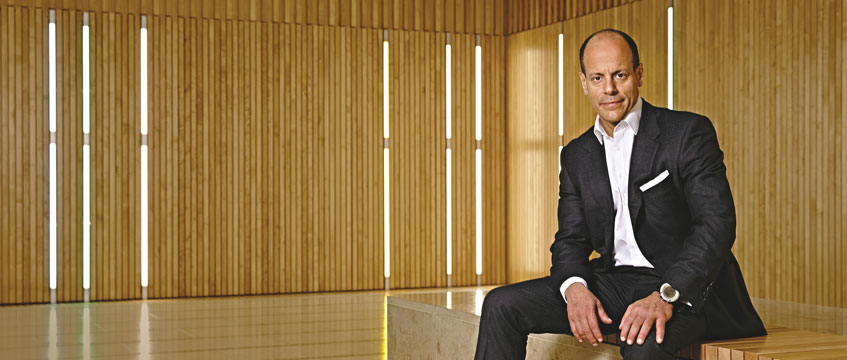 Airbnb, Uber, Spotify, Appear Here – these firms have negligible solid assets and yet have market caps and profits well into the billions. Their sector – the sharing economy – is based on technology, and is expected to grow in value and influence. Are traditional bricks-and-mortar entities destined for a slow decline?
Airbnb, Uber, Spotify, Appear Here – these firms have negligible solid assets and yet have market caps and profits well into the billions. Their sector – the sharing economy – is based on technology, and is expected to grow in value and influence. Are traditional bricks-and-mortar entities destined for a slow decline?
Think about the last time you went on holiday, got a taxi, listened to an album, ordered a takeaway, or even found some space to showcase your latest products. Chances are you used Airbnb, Uber, Spotify, JustEat or Appear Here. Chances are you just contributed a not-insignificant amount of money to the growing sharing economy, helping companies that technically do not own anything to get rich.
Airbnb has a market capitalisation of more than $25bn (£17.5bn). It is predicting revenues of $10bn by 2020 – up from $250m in 2013 and a reported $900m last year – and profits of $3bn by the same year. It currently runs at a loss of $150m pa, according to reports.
By contrast, InterContinental Hotels Group, the largest hotel chain in the world by room numbers, turns over around $2bn pa and has a market cap of just $6bn. But IHG has a portfolio of only 687,000 bedrooms across 4,800 hotels, whereas Airbnb has access to more than 2m properties in 34,000 locations and more than 60m guests.
The joy of sharing
Uber, the taxi service that owns no cars, has an even more spectacular tale to tell. Despite minimal assets, the firm has a value of $50bn. To justify that valuation, it needs to be generating around $35.7bn in turnover. In 2014, it generated $400m.
The valuation puts it ahead of more than 80% of the S&P 500 and, after just six years in operation, on a par with delivery giant FedEx, a company founded in 1971 that turns over more than $47bn pa and has fixed assets of some $21bn, including industrial warehouses.
The sharing economy, according to PwC, is expected to be valued at $335bn by 2025, up from $15bn today. Peer-to-peer lending and crowdfunding, online staffing and peer-to-peer accommodation will show the biggest growth, with revenues predicted to increase by 63%, 37% and 31% respectively.
And the UK government has committed to making the country the global leader in the sharing economy sector, allowing London homeowners to rent out their properties for up to 90 days a year without planning permission. That means more business for Airbnb and its rivals.
Ownership is old school
What does all this mean for the real estate market? Should investors still be putting their money into bricks and mortar, or investing in the platforms that allow asset owners to trade?
There is an argument that bricks and mortar will always remain, whereas businesses can, and do, disappear. Was it better to own the properties that some of the dotcom giants of the late 1990s occupied than own shares in the businesses? For those that lost every penny, the answer is, of course, yes. A building can usually be relet. Perhaps not always at the price wanted, but at a price. There is always some value.
But there is consensus that the sharing economy is here to stay and that it will reach the aforementioned lofty projections. And let’s face it, it has been around a long time already. eBay was set up more than 20 years ago, allowing people to trade goods with one another, goods that eBay does not own. It is still going strong, with annual revenues of more than $17bn.
The strength of the sharing economy can be put down to growth in the use of technology. Not too many years ago, a computer that could scour the world in minutes, seconds even, had to be hosted in a large room and was relatively inaccessible to most people. Today, more than 2bn of us carry something much more powerful in our pockets. Smartphone use, internet connectivity, increasing desire for on-demand and our growing comfort in no longer owning has meant that the use of peer-to-peer platforms is booming.
What is interesting is that while many of these new businesses are labelled disruptors, most make use of the most traditional of business models: commission. They put vendor (or renter) in touch with purchaser (or rentee) and collect a fee.
The disruptors are the middlemen – a necessity even the web has failed to kill off – which is one of the reasons commentators believe the sector is here to stay.
Celine Herweijer, partner at PwC, says: “Ownership is old school. It’s now all about consuming in a different way. It’s about sharing or renting rather than buying and owning things long-term.”
The power of peer-to-peer
And here’s how it works in real life. Already this year the closure of hundreds of shops has been announced, leaving landlords with a potential liability, or the likes of pop-up retail start-up Appear Here with an opportunity. Appear Here links void-avoiding landlords with short-term, space-hungry tenants. The platform is a win every time for the start-up, with little to no risk. It takes a fee. The landlord fills a void. The tenant gets a space. The void may return, but the fee remains. Always.
According to PwC, sharing economy companies are attracting $2.5m in funding every hour. That’s almost $42,000 a minute. Its latest survey of the sector found that most believe access and peer-to-peer models will become available to consumers in the vast majority of industries over the next decade and may overtake ownership as the predominant consumption model.
But back to why owning nothing may be more valuable than investing in bricks. According to a recent Barclays report, Airbnb currently represents as much as 17.2% of the room supply in New York, 11.9% in Paris and 10.4% in London. Some 129m room nights are expected to be booked through Airbnb this year. The impact on hotels and the leisure sector cannot be ignored.
In fact, says PwC, a third of senior hotel managers admit peer-to-peer accommodation sites are having an impact on business. So much so that some hotel groups are now investing in them.
Hyatt Hotels is part of a group of investors that last year helped raise $40m for Onefinestay, an Airbnb competitor aimed at the luxury market; Wyndham Hotels has a stake in London-based start-up LoveHomeSwap, a subscription service that allows homeowners to swap their homes; and French hotels giant Accor has admitted it was a mistake not to have become an early investor in Airbnb.
Rob Seabrook, head of UK brokerage at CBRE, does not think the growth of sharing platforms will have a major impact on real estate investors, however.
“I don’t see traditional hotel investors buying into the likes of Airbnb. It’s something the operators are more likely to be interested in. Traditional hotel investors don’t invest in brands.”
There will always be money to be had in bricks and mortar, and a new breed of property investor is making money through buying property purely to rent on Airbnb et al, but with legislation that limits rental nights to 90 a year in many cities, those fortunes can be limited.
Unlike, perhaps, those of the platform owners behind it.
Sharing models
There are two main models used in the sharing economy:
Access: A consumer is given access to something rather than ownership. It covers renting, subscribing, reselling, swapping, investing, gifting and lending, etc.
Peer-to-peer: Connects the spare capacity of consumers with demand from their peers.










